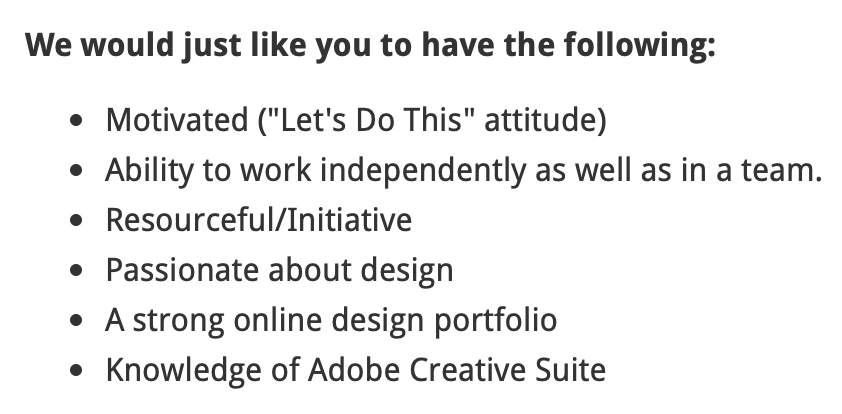This was what most of my interviewees told me when I asked them about their experience and outcome of doing a master’s programme.
Local finance blogs—our canonical national literature—similarly caution against the folly of doing a master’s programme.
But these disheartening sentiments belie the reality in Singapore.
According to the Singapore Department of Statistics (DOS), the number of Singapore residents (defined as citizens and Permanent Residents) choosing to pursue a higher degree has been rising steadily across the decades. In 1993—the first year DOS started keeping track of statistics—there were only 4095 residents enrolled in higher degree programmes; 24 years later, the number exploded 5-fold to 20,670.
The proportion is more pronounced when considered as a percentage of the population instead of absolute numbers: in 1993, the masterful 4095 comprised 0.1% of Singapore residents; in 2017, the 20,670 made up 0.5%.
Moreover, these numbers only register residents enrolled in local higher education courses. While it’s difficult to gauge the hordes of people departing our shores to imbibe knowledge under ivy leaves, a quick estimate based on available post-graduate scholarships and an unscientific guess of how many Bukit Timah residents can afford to fund their overseas studies puts the total number of master’s students in that particular year around at least 25,000, or 0.6% of Singapore residents.
While these percentages may seem ridiculously miniscule, they are relatively high when compared to other developed countries. For instance, only 0.05% of the Japanese population obtained a master’s degree in 2014; in the same year the number was 0.2% in France.
In other words, Singapore’s increase in master’s students far outstripped growth in the general population; furthermore, the proportion of master’s students as part of our resident population (so we are not taking into account international students) is 3 times that of France, and a staggering 12 times of Japan.
This raises the question: why do so many Singaporeans choose to enrol in master’s programmes?

For the more career-minded, master’s degrees are seen—or idealised—as a short-cut to recognition or promotion in the office, or to leap-frogging into the upper rungs of another industry.
Most of the time, perceived utility lies in the instrumental use of these qualifications, rather than the actual process of research and writing.
RICE’s own 29-years-old Current Affairs Editor, Grace Yeoh, reveals that she applied for a Master in Public Policy at the Lee Kuan Yew School of Public Policy just last year. Why? She was “burnt out, uninspired, exhausted”.
“The solution”, she figured, was to “switch to something totally different”. She also hoped she would gain “access to bigger job opportunities in the future, through networking in the programme.”
The master’s programme, then, was seen by her as a potential avenue out of the professional and personal deadlock in which she was struggling.

Alfred Lee is 29 and holds a Master of Arts in English Literature. Although he works in education, he admits that he didn’t “receive any tangible career benefits” from his higher degree because his job did not “take masters into account when formulating pay”. The same plight is suffered by Sarah Loh, a media executive in her early 20s, whose master’s in Classical Studies “meant absolutely nothing to employers” and did not “open any career paths”.
You might think that the irrelevance of their degrees is obvious: they foolishly undertook pansy liberal arts subjects that have no use in the economy. Yet, even when the qualification is directly relevant to a job, it might present unexpected drawbacks or opportunity costs.
On paper, the Master of Science in Applied Finance that Lim Wei Ming, 30, obtained while studying part-time opened new doors for him: after graduating from it, he found a new job in finance that came along with a salary raise.
The increment, however, was just 3%. He “even missed out on an opportunity to become a manager at [his] old job and was ‘demoted’ to analyst at [his] new job”. Yet he felt compelled to accept the new position because it made use of his shiny new certification—a requirement which psychologically validated his decision to spend more than a year and a half, and over $40,000, to continue studying.
Consoling himself, Wei Ming rationalises that “the benefits of [his] master’s are not that straightforward or tangible”.
It is perhaps a good thing, then, that Grace ended up not enrolling in her master’s programme. She does not regret her decision—after further reflection, she realised she was motivated by external circumstances and expectations (i.e. occupational burnout, career switch) to apply for the programme. Accordingly, when her situation changed—new position, new challenges–she shook off her sense of stagnancy and the master’s programme lost its allure.



In fact, if you have a master’s degree, it might even prejudice companies against you, for reasons ranging from “will probably want to do a PhD later and so is not a long-term hire” to “too smart for the job”. This is something that happened to my friend Christine, who was told she was overqualified for—wait for this—a research position at a local university.
Sarah reflects: “I loved my time on the course, but given the cost and how little impact it’s had on my career generally, I’m not sure I would make the same choice if I could do a do-over.”

The stable core of master’s students comprises people who actually want to be students (and not managers-in-training or consultant aspirants). Or, as Sarah puts it more eloquently, people who indulge in “pure intellectual hedonism”.
She would know—in her programme, she learnt to read Plato and ancient Greek tragedies in their original language. Apart from going into academia, which was Sarah’s original intention, it’s hard to think of practical, let alone vocational, applications of such esoteric knowledge.
Still, quixoticism and obscurity have never stopped people from pursuing their interests.
Lest this portrait begins to sound like it’s valorising the idea of master’s students as scholars religiously devoted to pure intellectual inquiry, it should be pointed out that there is yet another reason why students want to remain students.
Even though Alfred, too, “wanted to see if an academic career was feasible”, he admits that he chose to prolong his studies “also because [he] enjoyed [his] time as an undergrad and wanted to extend [his] uni candidature”.
To put it in less euphemistic terms, Alfred wanted to delay working life because he found student life fun.

The university, as this liminal space that insulates the student from the Real World of Work while adorning them with a sheen of Responsibility and Productivity in the name of Knowledge, is thus an irresistible song to the weary Singaporean worker and the student skittish at being thrust unceremoniously into the office.
And contrary to the tired stereotype, it’s not just arts and humanities graduates who succumb to the illusion of a master’s programme as a rejuvenating oasis within our capitalistic desert. People working and studying in a corporate, business-related area also feel the same way towards master’s programmes.
While Wei Ming “wanted to improve [his] finance skills through structured learning and figure out if [he’s] using industry best practices at work”, underneath this burnished surface, he also admits wryly that he was “bored at work and wanted an excuse to leave work on time”.

Across East Asia, Singapore was the first country to slip into recession during the 2008 – 2009 financial crisis. Right on cue, enrolment in higher degree programmes shot up. From 2007 to 2009—at the height of the crisis—there was an increase of around 1500 students per year; after the storm passed, the annual increment of students shrank to a mere 100.
In light of recent economic conditions, we can probably expect the number to mushroom again. To be crude about it: cannot find a job? Go back to school, the ivory tower, the cocoon warm as a mother’s hug.
But for those looking for an cushy space to weather out the storm, a master’s programme is hardly the appropriate venue for a 1-year nap. Most do not realise that a research master’s operates very differently from the coursework-based undergraduate programmes we are used to.
Half-way into his research programme Alfred discovered that he’s “not exactly fond of research”, to put it mildly, which resulted in him extending his candidature (unwillingly this time) so that he could painfully complete his dissertation. Wei Ming had the same feeling, likening his experience to that of eating bian tai la mala:
An analogy for it would be you going for some out-of-the-world, life-threateningly spicy mala hotpot with a group of friends. … you are all crying because the mala is literally burning through your tongues and you are also laughing because you are all in it together going through these absurd times. Everybody wonders why we even spent money on it in the first place and we continue eating the mala hotpot for 1 year plus.

This is, after all, the impetus behind education, and what it should look like in the first place—not as some career finishing school that “prepares you for the future”.





